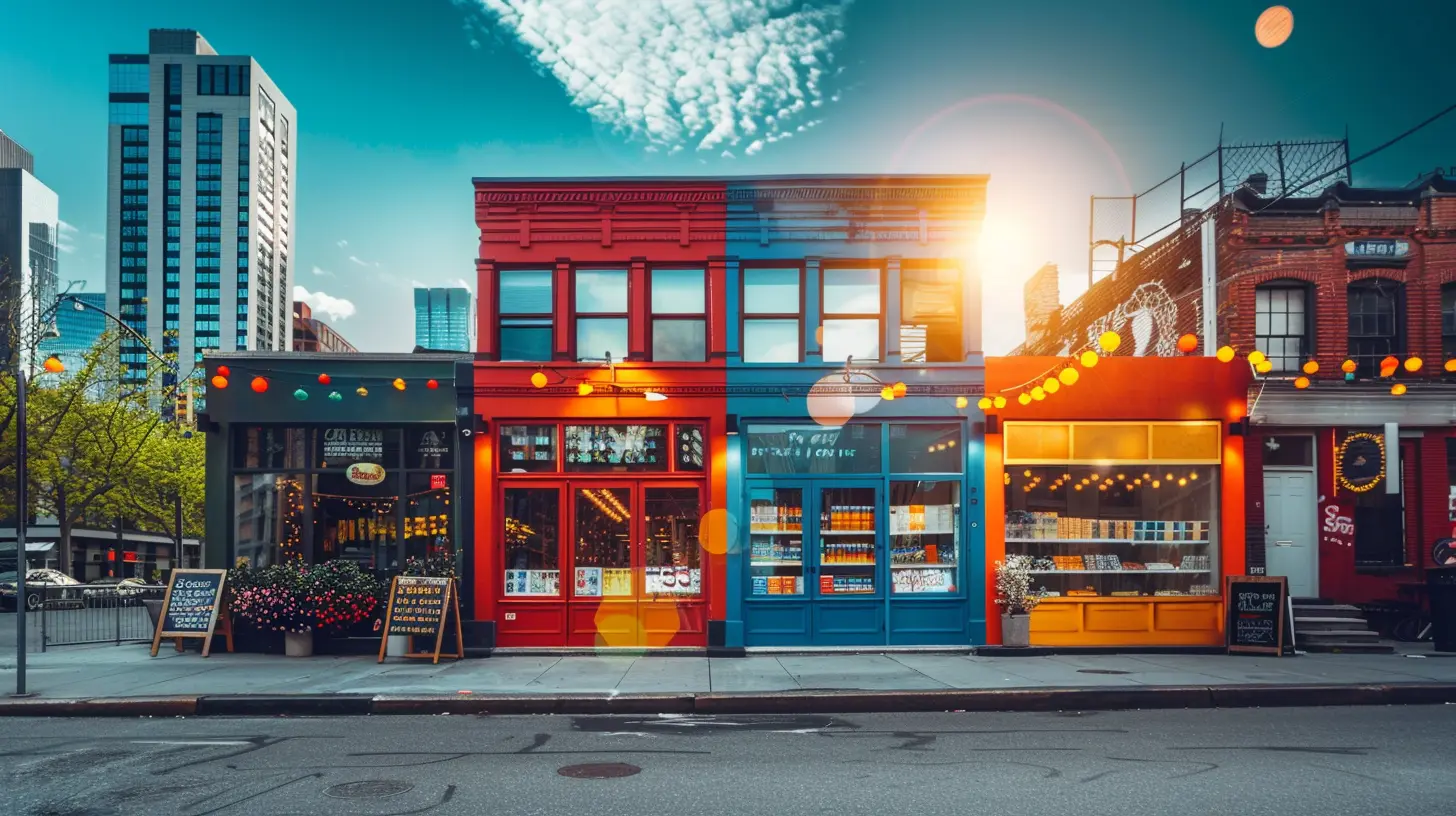Why Franchising is a Smart Business Strategy in Diverse Markets
1 August 2025
You’ve probably noticed a familiar coffee shop or fast-food chain popping up in places you didn’t expect—whether it’s a small town in rural America or a bustling city street in Asia. Ever wondered why these businesses seem to multiply like rabbits? The answer lies in franchising.
Franchising isn't just a trendy buzzword—it’s a strategic powerhouse, especially in diverse and ever-evolving markets. Whether you're a budding entrepreneur or a seasoned brand looking to scale, franchising can open doors you never knew existed.
Let’s break this strategy down and get to the bottom of why franchising is such a smart move in today’s global and culturally varied marketplace.
What Exactly Is Franchising?
Before we dive too deep, let's get on the same page.Franchising is a business model where a business owner (the franchisor) licenses their brand, business processes, and support to independent operators (franchisees). In return, the franchisee pays fees and agrees to follow the brand’s guidelines.
Think of it like this: the franchisor is the chef, and the franchisee is cooking from the chef's recipe. The dish (the business) should taste the same, whether you’re eating it in New York, Tokyo, or Cape Town.
Why Franchising Works So Well in Diverse Markets
1. Local Insight with Global Power
Here’s the magic sauce—franchising combines the power of a well-known brand with the insights of local entrepreneurs.In diverse markets, no one understands the customer better than a local. Local franchisees know the culture, the spending habits, the food cravings, and even the preferred hours of operation. That’s golden info for any business.
Now toss in a globally recognized brand and a proven business model, and boom—you’ve got a winning combo.
2. Scalability on Steroids
Franchising lets businesses grow fast without the franchisor footing every bill.In traditional business expansion, the parent company has to invest in every new location—real estate, staff, logistics, the works. That gets expensive and risky.
But with franchising, franchisees shoulder those costs, and the brand expands more rapidly. It’s like having multiple people build your house while you draw the blueprints. Less risk, more reward.
3. Cultural Adaptability
You can’t serve the same menu or offer the same services in every market and expect it to work.Franchising gives brands the flexibility to tweak their offerings without losing their identity.
Take McDonald’s, for example. In India, there’s no beef on the menu. In Japan, you might find a shrimp burger. That’s cultural adaptability at its finest—and the franchise model makes it possible.
Franchisees have the freedom (within limits, of course) to adapt the product to local tastes. It’s like customizing a playlist while still sticking to your favorite genre.
4. Stronger Community Ties
A franchise run by a local entrepreneur is more likely to connect with the community than a corporate-run branch.Why? Because locals support locals. Franchisees are part of the local fabric—they understand the people, the events, the causes, and the trends. That creates a sense of trust and loyalty among customers.
In diverse markets where cultural identity plays a big role, this level of connection can be a game-changer.
The Business Case: Why Franchising Is Low-Risk and High-Reward
Let’s talk cold hard cash.Starting a business from scratch is risky—only about 50% of small businesses make it past the 5-year mark. Franchising flips those odds in your favor.
1. Proven Business Model
You’re not reinventing the wheel. You’re buying a wheel that’s already rolling smoothly.Franchise businesses come with a playbook—marketing strategies, operational support, brand recognition, and often, a built-in customer base.
That’s less guesswork, less error, and fewer sleepless nights.
2. Shared Marketing Power
Ever seen a Super Bowl ad for a fast-food chain and felt like it was speaking directly to you? That’s the power of shared marketing.Franchisees don’t have to build a brand from scratch. They leverage national or global marketing while still running local campaigns. It’s the best of both worlds.
3. Built-In Training and Support
Franchisors offer extensive training and support. From hiring staff to managing operations to handling customer complaints—they’ve got your back.This is especially helpful in diverse markets where understanding cultural nuances can make or break your business. With the right support, you jump over hurdles instead of tripping on them.
Real-World Impact: Franchising Success in Diverse Regions
Let’s take this out of theory and into the real world.1. Starbucks in the Middle East
Starbucks didn’t just barge into the Middle East with the same model they used in Seattle. They partnered with local franchisees who understood regional customs, religious practices, and consumer habits.Result? Thousands of loyal customers sipping lattes in culturally adapted stores.
2. 7-Eleven in Asia
Did you know 7-Eleven is huge in countries like Thailand and South Korea? The brand adapted by offering local food items and services like bill payments and parcel pick-up—things that matter in those communities.All made possible because local franchisees knew what their customers needed.
Challenges? Yes. Deal-Breakers? Not Even Close.
Look, no business model is foolproof. Franchising has its downsides too.1. Consistency vs. Creativity
Sometimes franchisees want to innovate, but they’re tied to strict brand requirements. It’s a bit like coloring inside the lines when you really want to paint a mural.Finding a balance between brand consistency and local innovation is key.
2. Franchisee Dependence
A brand’s reputation is only as strong as its weakest franchise. If one bad apple spoils the cart in a local market, it can drag down the entire brand image.That’s why franchisors invest heavily in training, audits, and support systems.
How to Know If Franchising Is Right for You
Great question—because franchising isn’t for everyone.1. Are You Okay with Rules?
Franchises come with structure and guidelines. If you’re the rebellious type who loves going off-script, it might feel restricting.2. Do You Love Working Hands-On?
Franchisees often work front and center. You’re not just delegating—you’re managing, problem-solving, and yes, sometimes rolling up your sleeves in the nitty-gritty.3. Do You Want a Faster ROI?
Franchising tends to hit profitability faster since the model is refined and the brand is already known. If you don’t want to spend years building a brand from scratch, franchising can be your shortcut.Franchising in the Digital Age
Technology has made franchising even more attractive.1. Streamlined Operations
From mobile POS systems to cloud-based inventory management, tech makes running a franchise smoother than ever.2. Market Research at Your Fingertips
Social media and analytics tools give real-time insight into what customers want. Franchisees can make data-driven decisions customized for their local market.3. Easier Communication
Apps and CRM platforms make it simple for franchisors to communicate with their franchisees—sharing updates, training, and best practices without missing a beat.Final Thoughts: Why Franchising Is the Ultimate Growth Hack
Franchising is not just a business model; it's a bridge—a bridge that connects global brands with local markets in a meaningful, profitable way.In diverse regions, where one-size-fits-all strategies fail, franchising offers the agility, insight, and support needed to succeed. It empowers local entrepreneurs while expanding global reach. It lowers risk while skyrocketing potential. It's structure with flexibility, business with heart, and growth with purpose.
So, if you're looking to make your mark in a diverse market—whether you’re eyeing expansion or opening your first business—franchising might just be the smartest strategy in your playbook.
Now the only question is… are you ready to franchise your future?
all images in this post were generated using AI tools
Category:
FranchisingAuthor:

Rosa Gilbert
Discussion
rate this article
1 comments
Thane McDermott
Ah, yes! Because who wouldn’t want to navigate the thrilling rollercoaster of diverse markets by shackling themselves to a franchise? It’s not like originality or local insight could ever compete with cookie-cutter convenience. Let’s all just join the franchise parade—what could possibly go wrong? 🎢
August 8, 2025 at 3:16 AM

Rosa Gilbert
Franchising offers proven systems and support that can enhance local insight while minimizing risk. It’s about balancing consistency with adaptability.


